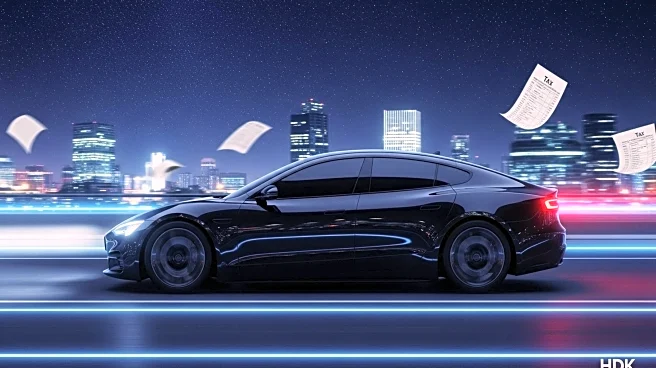What's Happening?
Ford has reported a significant increase in sales for its electric vehicle, the Mustang Mach-E, with a 50.7% growth in the third quarter of 2025. This surge is attributed to the expiring U.S. EV tax credit, which prompted a consumer rush to purchase electric vehicles before the October 1st deadline. The Mustang Mach-E achieved 20,177 sales in the third quarter, marking a record for the electric crossover/SUV. Additionally, the Ford F-150 Lightning saw a 39.7% increase in sales, reaching 10,005 units. However, the Ford E-Transit experienced a decline, with sales dropping by 85.4% compared to the same period last year.
Why It's Important?
The increase in sales for Ford's electric vehicles highlights the impact of government incentives on consumer behavior and the automotive market. The expiring tax credit has driven a surge in demand, benefiting manufacturers like Ford. This trend underscores the importance of federal incentives in promoting the adoption of electric vehicles, which are crucial for reducing carbon emissions and advancing sustainable transportation. The growth in sales also reflects Ford's strategic positioning in the EV market, potentially enhancing its competitive edge against other automakers.
What's Next?
Ford has found a loophole to extend the $7,500 tax credit to consumers through the end of the year, which may sustain the sales momentum into the fourth quarter. The continuation of this incentive could lead to further increases in sales, benefiting both Ford and its customers. The company's ability to maintain this growth will depend on its production capacity and market conditions. Additionally, the performance of Ford's EVs in the absence of federal incentives will be closely watched by industry stakeholders.









